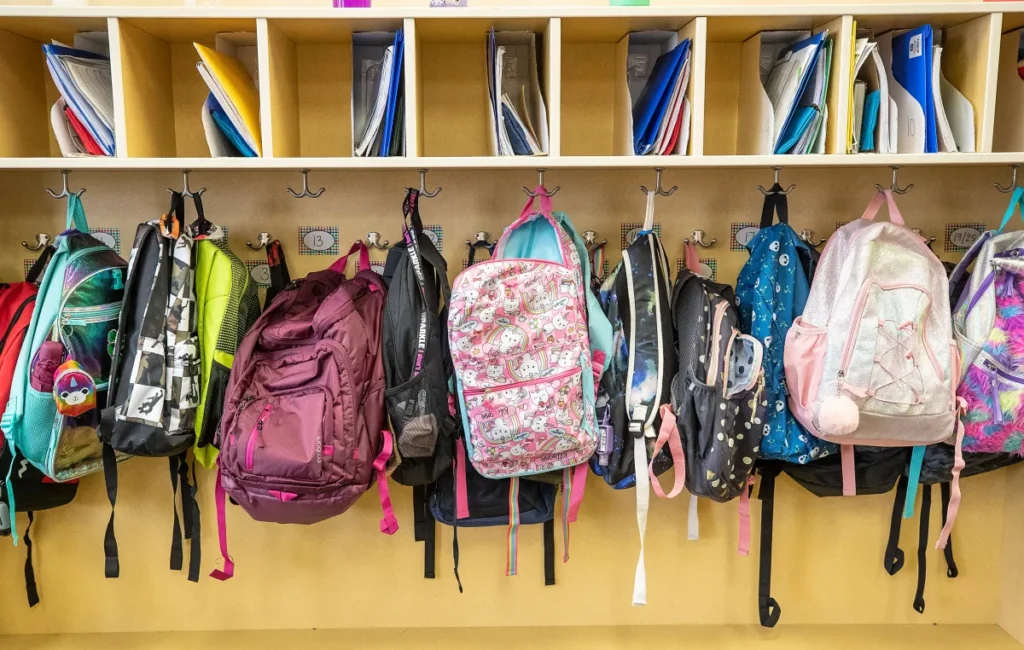Florida students scored significantly worse on national reading tests taken last year than in 2022, mirroring a continuing national decline since the COVID-19 pandemic, data released Wednesday morning shows.
The Sunshine State’s eighth graders also struggled on the national math test, posting the state’s lowest scores in 20 years. Those middle schoolers’ reading scores dropped to the lowest recorded in more than 25 years.
The state’s fourth grade reading score fell to the worst mark since 2003. Those students’ math score was about the same as two years ago, but still short of pre-pandemic numbers.
The release of fourth and eighth grader scores from the National Assessment of Educational Progress, or NAEP, showed the country’s children are still impacted by the pandemic, which shuttered schools and forced many children to learn online, officials said.
The NAEP scores are based on tests given to a sampling of public school students across the country. For the most part, scores are reported only for states — though 26 large school districts took part and got their own scores.
The NAEP scores are collectively called “the nation’s report card” and 2024’s was “not good,” said Peggy Carr, commissioner of the National Center for Education Statistics.
Data shows students’ enthusiasm for reading is declining, and most student’s reading practice comes from what they see on their phones, Carr said. Those factors likely contributed to the continued downward trend, she added.

Florida, long a leader in elementary reading, continued to do better than most states at fourth-grade reading, even as its scores dropped from 2022 and from the pre-pandemic high in 2017. Only Massachusetts and Department of Defense schools outperformed Florida in fourth-grade reading in the 2024 tests.
But Florida’s eighth-grade reading scores fell in 2024, with the state performing worse than 27 other states. The state’s score dropped below the national average score for the first time since 2015.
The eighth-grade math test scores were also worse than those of 27 other states. Florida’s score dropped even as the national score held steady. Florida’s eighth grade score reverted to below what it was in 2003, essentially wiping out progress of the last 20 years.
“Florida, they seem to look good in fourth grade in terms of how they rank with other states, but then when it gets to eighth grade you see them go from being one of the top handful of jurisdictions to a little below the median. That’s an interesting trend,” said Grady Wilburn, a senior statistician and researcher with NCES.
Diaz said in his letter that the 2024 test administration, focused solely on public schools, failed to account for Florida’s “educational landscape,” which provides private school scholarships to thousands of students. Further, he argued, it likely was marred by test interruptions because of new computers and internet access problems and didn’t accurately capture a representative sampling of the state’s public school students.
He urged federal officials to implement changes to “make NAEP great once again” and said he supports abolishing the U.S. Department of Education, a campaign pledge of President Donald Trump.
Diaz ended his five-page letter by saying, “Florida stands ready to assist your Department and the Trump Administration as we work together to make American education great again.”
In addition to providing scores, NAEP also puts performance into achievement levels of “basic,” “proficient” and “advanced.”
Nationally, students in fourth grade have performed worse on reading tests since the pandemic. The percentage of fourth-graders who scored below “basic” on reading was 40% — the largest percentage in 20 years.
At a “basic” level, a fourth grader on the reading test would be able to sequence or categorize events from a passage, a “proficient” student could describe the impact of a character’s actions and an “advanced” student could identify themes, according to a NAEP spokesperson.
In 2024, the percentage of eighth-graders nationally reading below “basic” level was the largest in the assessment’s history at 33%.
The achievement gap — or how different groups of students do on the exams — was the largest that the test has ever seen, with higher-performing students improving but lower-performing ones continuing to fall, Carr said.
The Sunshine State’s racial achievement persisted in 2024, with Black and Hispanic students continuing to perform worse on average than their white and Asian counterparts.
In 2024, 18% of Black fourth-graders, 31% of Hispanics, 41% of white students and 54% of Asian students reached a “proficient” score in reading — all representing a smaller percentage than two years earlier.
Carr attributed falling test scores in part on student absenteeism. Student attendance improved slightly compared to last year but still exceeds pre-pandemic levels, according to NAEP data. Lower-performing students are more likely to be absent from school, she said.
“If students aren’t in school, they can’t learn. That’s what this data underscores,” she said.





















